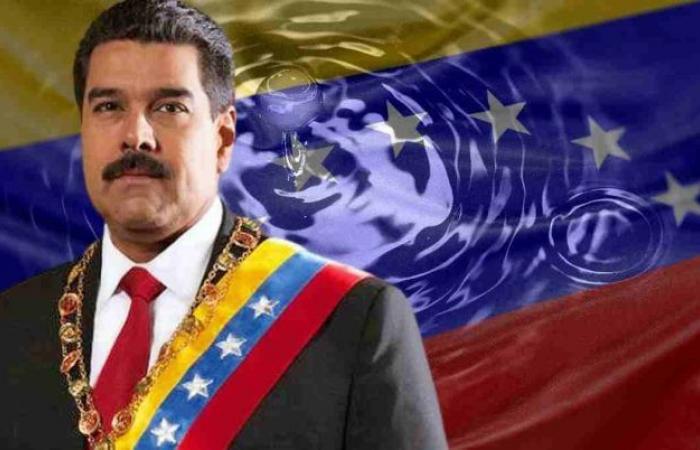Nations across the planet are trying to free themselves from the hegemony of dollar North American using it in the most varied ways and for the most varied reasons. In this scenario, the Venezuela has been gradually leaving aside the currency of U.S and using cryptocurrencies in the negotiations of Petroleum with the rest of the world.
The truth is that it is not quite a total abandonment of the dollar. According to an article published by Reuters last Monday (22), the country led by Nicolás Maduro has been using the Tether (USDT)the third largest cryptocurrency in the world, has been selling oil since last year, but on a smaller scale.
Tether is one of a specific class of cryptocurrencies, called stablecoins — or, in short, virtual currencies that have backing and, in the case of USDT, parity with the US dollar.
In other words, Venezuela has been using a “virtual dollar” to negotiate oil with other countries. And this movement has intensified after the United States once again lifted economic sanctions against the country.
- Anyone who invested just R$3,500 in a cryptocurrency BEFORE the last halving became a millionaire… Now, a new list with the same potential has been released with a single objective: to make you a millionaire by investing at least R$500 in each in this bullish cycle. Check out more details here.
Venezuela, oil and cryptocurrencies
Venezuela’s fear is that, by using traditional currencies in the context of sanctions imposed by the US, revenues from oil sales will be blocked in the country’s foreign accounts.
In October last year, the country led by Joe Biden relaxed rules for importing Venezuelan oil. The measure, however, was only valid for six months, ending at the end of March.
With cryptocurrencies, prevent access to virtual wallets (wallets) It’s harder. It is worth remembering that Tether is issued by a company of the same name and that it has no direct connection with the United States Treasury, which would make any immediate sanctions difficult.
“We have several different currencies [para negociar petróleo]in accordance with what is stipulated in the contract,” Venezuelan Oil Minister Pedro Tellechea told Reuters last week.
He further stated that, in some contracts, cryptocurrencies may be the preferred payment method. Tellechea didn’t make it clear why, but the virtual currencies’ near-anonymous transactions could be a clue.
The past of oil in Venezuela
In 2023 there was a corruption scandal involving Petróleos de Venezuela, or just PDVSA, as the state-owned company that explores the commodity there is better known.
Around US$21 billion in unaccounted receivables from oil exports have been discovered in recent years. Some of these transactions also involved the use of cryptocurrencies.
At the same time, Tellechea took over Venezuela’s Ministry of Oil, and the US removed sanctions on the country’s oil imports — in view of conflicts with large producing countries, such as Russia and Middle Eastern nations.
The result was seen this year: exports reached around 900 thousand barrels per day in March, the highest value in four years.
Slow — but continuous migration
PDVSA also started to require new customers who want to trade with Venezuela to have cryptocurrencies in a digital wallet. Even some old contracts are being changed to use USDT.
However, to carry out these negotiations, partnerships with intermediaries, such as brokers (exchanges) or other crypto platforms. And part of the US sanctions affect these entities, which makes it difficult to expand the use of USDT.
Thus, Venezuela is practically unable to negotiate directly with large consumers, such as China.
- SEE ALSO – WHY WOULD CHINA DO EVERYTHING TO KEEP THE CONFLICT IN THE MIDDLE EAST FROM ESCALATING?
Beyond Venezuela: who trades oil without the dollar
Here in the Your money We have already done a series of articles on the hegemony of the US dollar as the main currency for transactions on the planet. Here you can read parts four, three, two and one.
This “majesty” of the dollar began at the end of the Second World War and continued until Russia’s suspension of the Swiftthe international payments system — and then everything started to go down the drain. Since then, even President Luiz Inácio Lula da Silva has become one of the most active voices against the hegemony of the dollar.
During a visit to China, he reinforced at the time the need for a common currency for trade between the BRICS, the most important bloc of developing countries in the world.
- [Relatório cortesia da Empiricus Research] The house’s chief strategist releases content with investment recommendations and comments on the macro scenario. See what Felipe Miranda has to say about Israel-Iran, the dollar, US interest rates and the fiscal target, clicking here.
Tags: Goodbye dollar sanctions Venezuela plans cryptocurrencies trade oil
--





